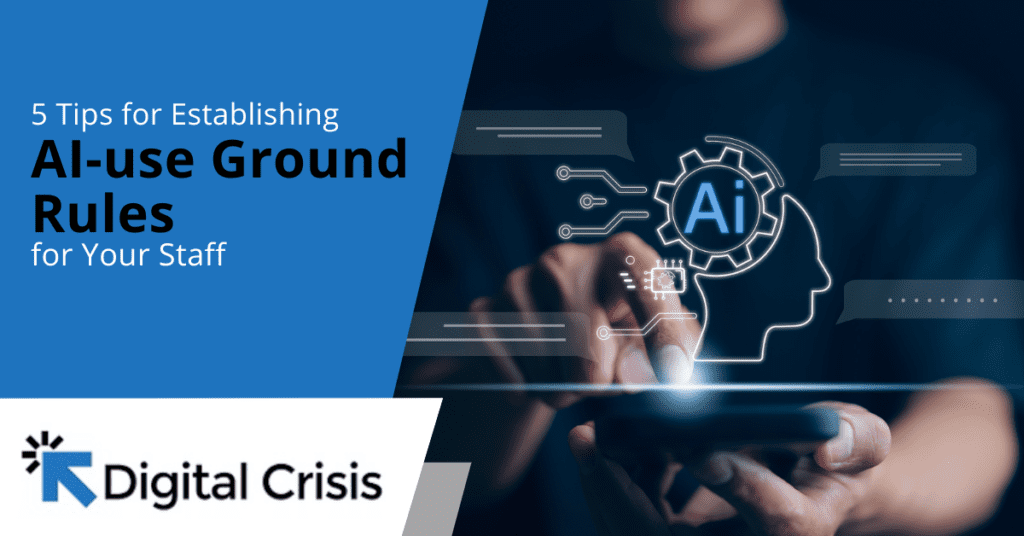
In the dynamic landscape of contemporary workplaces, the infusion of artificial intelligence (AI) has become an increasingly prevalent phenomenon. While the incorporation of AI technologies can undoubtedly bring about heightened efficiency and innovation, it simultaneously raises significant concerns related to ethics, privacy, and the overall well-being of employees.
As a conscientious employer, it is imperative to establish comprehensive ground rules governing the use of AI within your organization. In this article, we will delve into a detailed exploration of key strategies to navigate the intricacies of AI integration, ensuring a harmonious coexistence with your workforce.
Before embarking on the implementation of AI technologies, it is paramount to define clear and well-articulated objectives. This involves a meticulous examination of the specific tasks or processes that AI is expected to enhance within the organizational framework. By establishing precise goals, you not only provide a purposeful direction for your AI initiatives but also delineate the boundaries for its application.
To ensure the effectiveness of this step, it is crucial to transparently communicate these objectives to all stakeholders, including your employees. By doing so, you foster an environment of openness and collaboration, where everyone is aligned with the overarching goals of AI integration.
Promoting a positive and inclusive environment around AI necessitates a thorough educational initiative for your workforce. This involves providing comprehensive training on the fundamentals of AI, demystifying the technology, and highlighting its potential benefits. The goal is to empower your employees by showcasing AI as a tool that augments their capabilities rather than one that replaces them.
Consider organizing workshops or training sessions that not only elucidate the technical aspects of AI but also illustrate real-world examples of successful AI implementations. By fostering a culture of continuous learning and understanding, you lay the foundation for a workforce that is not only knowledgeable about AI but also enthusiastic about its potential contributions.
Given the significant impact that AI decisions can have on individuals, it becomes imperative to establish robust ethical guidelines. These guidelines should serve as a moral compass, steering the ethical use of AI within the organizational context. A proactive approach involves forming an ethics committee dedicated to overseeing the application of AI and ensuring alignment with the company’s values.
This committee can play a crucial role in formulating and regularly updating ethical guidelines that reflect evolving societal standards and expectations. By clearly outlining the consequences of ethical violations and integrating these guidelines into your organizational culture, you not only safeguard the rights of your employees but also demonstrate a commitment to responsible and humane AI use.
One of the prevailing concerns surrounding AI revolves around the perceived lack of transparency in decision-making processes. To address this, organizations must prioritize demystifying the decision-making mechanisms of AI systems.
This involves documenting and transparently communicating the algorithms that govern decision-making, providing explanations for significant AI-driven decisions, and fostering an environment where employees feel encouraged to provide feedback for refining these processes.
Transparency not only addresses concerns related to trust but also empowers employees to collaborate more effectively with AI systems. By offering insights into the decision-making rationale, organizations can bridge the gap between human intuition and AI-driven algorithms, fostering a symbiotic relationship between the two.
The integration of AI often involves the processing of sensitive and confidential data. In light of this, organizations must prioritize robust data security measures to prevent breaches and safeguard privacy. This involves implementing state-of-the-art encryption protocols, ensuring compliance with data protection regulations, and regularly updating security measures to stay ahead of emerging threats.
Moreover, organizations should foster a culture of accountability regarding data security, where employees are educated about the importance of safeguarding sensitive information. This includes implementing access controls, conducting regular audits, and adopting a proactive stance towards cybersecurity.
The integration of AI into the workplace is an inevitable progression that demands careful consideration and strategic planning. By defining clear objectives, educating employees, establishing ethical guidelines, ensuring transparency, and prioritizing data security, organizations can create a framework that maximizes the benefits of AI while mitigating potential risks.
As we at Digital Crisis understand the transformative power of AI and its impact on the workplace, we encourage organizations to approach AI integration with diligence and a commitment to ethical practices. By doing so, we not only embrace innovation but also ensure a future where AI and human collaboration thrive harmoniously.
For further assistance or inquiries, feel free to contact us. At Digital Crisis, we are dedicated to guiding organizations through the complexities of AI integration with expertise and a focus on ethical considerations.